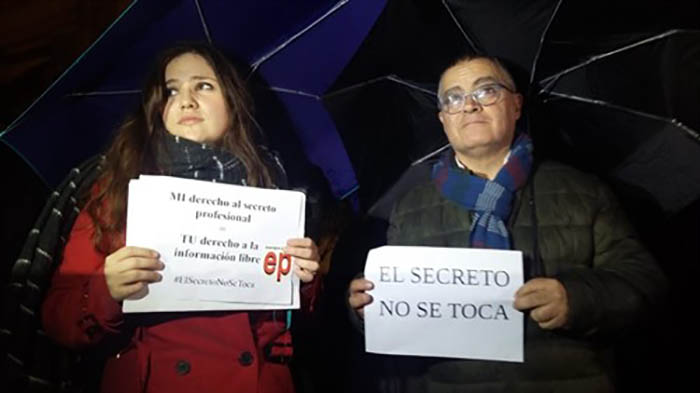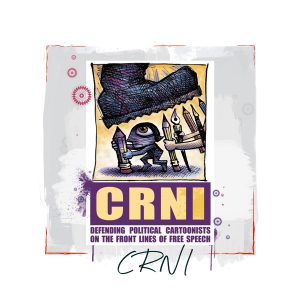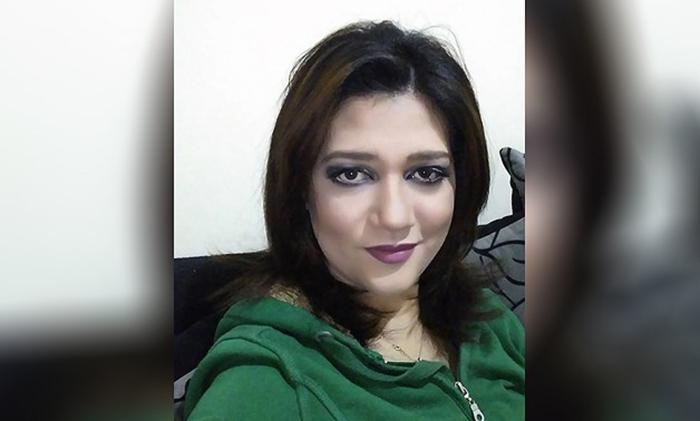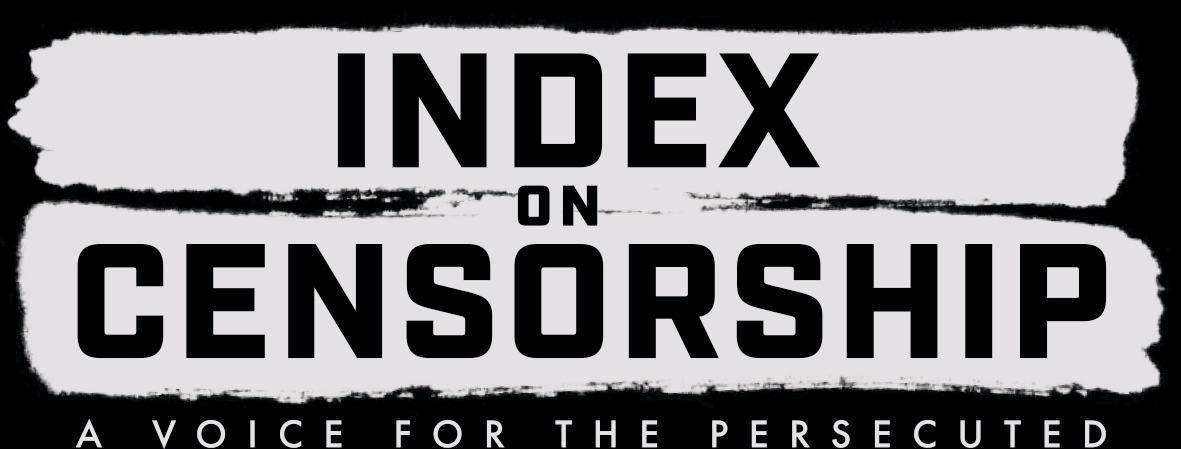12 Mar 2019 | Awards, News and features
[vc_row][vc_column][vc_video link=”https://youtu.be/afHCcOfrBSY”][vc_column_text] The Institute for Media and Society (IMS) is a Nigerian NGO that is going to great lengths to improve the country’s media landscape by challenging government regulation and fostering the creation of community radio stations in rural areas at a time when local journalism globally is under threat.
The Institute for Media and Society (IMS) is a Nigerian NGO that is going to great lengths to improve the country’s media landscape by challenging government regulation and fostering the creation of community radio stations in rural areas at a time when local journalism globally is under threat.
IMS’s approach combines advocacy to repeal legal restrictions and practical action to encourage Nigerians to use their voices. IMS studies the legal framework in which Nigerian media operate, and pressures the government to act on their recommendations. It also uses its expertise to stimulate bottom-up changes in the national media landscape by encouraging Nigerians to develop their own media outlets.
IMS reports that 75% of television and radio stations in Nigeria are owned by politicians, and as a result they are divided along political lines, while rural communities are increasingly marginalised.
As the headquarters of the Nigerian Community Radio Coalition, IMS advocated for under reported communities to start their own radio stations, and in 2015, this led to the licensing of 17 community radio stations. Many of these outlets have since evolved into solid platforms that champion community development, transparency in governance and accountability.
In its advocacy work, IMS lobbies the government and the National Assembly to reform the country’s legal framework. In one of its latest battles, IMS has been advocating for the independence of the Nigerian Broadcasting Commission, the agency that regulates the country’s broadcast media, from ongoing governmental interference – a major impediment to freedom of expression.
Through its website, IMS also monitors Nigerian media and tracks violations of the rights of journalists. Their work draws attention to an increasingly hostile environment. The last few years have seen murders, arrests and threats against journalists.
One of IMS’s success stories in 2018 was its opposition of the ‘Nigerian Press Council Bill 2018’, which critics contended was not only draconian and unconstitutional, but would have also criminalised journalism practice. The bill was withdrawn from consideration by the National Assembly.
IMS also successfully lobbied the NBC for reducing community radio license fees from N500,000 to N200,000, and is advocating for their complete removal. [/vc_column_text][vc_separator][vc_row_inner][vc_column_inner width=”1/2″][vc_single_image image=”104691″ img_size=”full” onclick=”custom_link” link=”https://www.indexoncensorship.org/2019/01/awards-2019/”][/vc_column_inner][vc_column_inner width=”1/2″][vc_column_text]
Index on Censorship’s Freedom of Expression Awards exist to celebrate individuals or groups who have had a significant impact fighting censorship anywhere in the world.[/vc_column_text][/vc_column_inner][/vc_row_inner][vc_separator][/vc_column][/vc_row][vc_row][vc_column][vc_basic_grid post_type=”post” max_items=”4″ element_width=”6″ grid_id=”vc_gid:1552321469663-a73739a4-7337-9″ taxonomies=”26925″][/vc_column][/vc_row]
12 Mar 2019 | Media Freedom, media freedom featured, News and features, Spain
[vc_row][vc_column][vc_column_text]

Blanca Pou and Kiko Mestre showing solidarity with journalists in court in December 2018
In March 2017 prominent Mallorca businessman Bartolomé Cursach was arrested on charges including bribery, extortion, making threats, money-laundering, homicide, corruption of minors and possession of firearms.
In July 2018 Palma-based news agency Europa Press Mallorca published details of a secret police report that formed part of the investigation into Cursach’s business affairs. On 11 December, following orders by judge Miguel Florit, National Police officers investigating the leak of the police report seized documents, mobile phones and computers belonging to editors Kiko Mestre of the regional daily Diario de Mallorca, and Blanca Pou of Europa Press.
The action was considered an attack on freedom of the press for not respecting the right of journalists to protect the identity of their sources. Professional secrecy for journalists is recognised by the Spanish Constitution in Article 20.
“Judge Florit seems to have forgotten that journalists have not only the right, but the duty to protect our sources,” said Kiko Mestre. “Otherwise, investigative reporting would not exist.”
The seizure of the journalists’ equipment has given rise to protests among journalists at the regional, national and international levels. As Mestre tells Index on Censorship: “Journalism professionals have come together as never before. This is a one-of-a-kind case in Spain and does not only affects Blanca and me but the essence of journalism.”
On 14 December almost 200 journalists from Mallorca gathered in Palma city in defence of the citizens’ right to information. During the protest, representatives of the Union of Journalists of the Balearic Islands (SPIB) and the Association of Journalists of the Balearic Islands (APIB) read a joint statement describing the judicial action as a “direct attack on the free exercise of journalism”. APIB also published a manifesto on its website, which has been signed by more than 1700 journalists. Ángeles Durán, president of APIB, stressed the importance of journalists defending their rights: ”Journalists must demand compliance with the Constitution and fight for free information, which involves criticism of restrictive laws. All coercive measures towards journalists undermine the right to information.”
Demonstrations were also called in Madrid and Barcelona at the entrance to the Supreme Court and the High Court of Justice under the slogan: “Our professional secrecy, your right to information.”
The Spanish journalists’ federation FAPE, the Platform for the Defence of Freedom of Information PDLI and the Association of Media AMI also condemned the judicial and police action and defended the right to professional secrecy through public statements.
Cursach’s influence on Mallorcan institutions and public powers became apparent at the beginning of the investigation. As Mestre said, Cursach has “always shown interest in controlling the media”. Indeed, it is not the first time Mestre feels under pressure. “I have been the target of a smear campaign with very serious comments on social media. A lawyer hired by Cursach coerced me and published serious accusations on a social media page whose followers are all either charged in the judicial case or employed by Cursach.”
“There are very obscure interests behind,” added Durán. “The situation seems to be the plot of a film with corruption at all levels.”
“The first days after the seizure I feared I could be followed,” admits Pou. “Any judicial process makes you nervous, but if you are not sure it will be a clean process, then you feel more insecure.”
This is not an isolated case of an attack on freedom of the press in Spain. In the last world ranking on press freedom by Reporters Without Borders in April 2018, Spain went down two places, from 29th to 31st, from the year previous. Spain’s profile on Mapping Media Freedom also shows an increase in media freedom violations year-on-year.
Durán said: “We all know of cases at the national level that are quite surprising for a democracy, such as the seizure of the book Fariña. And the Gag Law is a tool of coercion and censorship. In 2015 then minister of Justice Rafael Catalá suggested penalising media that published judicial leaks. Politicians try to silence the press, and now judicial powers are putting freedom of information at risk. We have always been aware of indirect pressures from political powers through subsidies and institutional advertising, but the role that some judges are adopting is alarming.”
Mestre claims their work is being hindered: “There is more and more interference of the judicial power and we are being criminalised. Florit has gone beyond limits that had never been overstepped in the history of Spanish democracy. Instead of prosecuting the perpetrators of the crimes, it is our work what has been questioned.”
As for Pou, journalists’ honesty is being completely sidelined: “No matter how honest the journalist is, sources are unprotected and can be identified.”
Both journalists filed a complaint against judge Florit for perversion of justice, offence against inviolability of the home and against the right to professional secrecy. The significance of the incident is not limited to press freedom in today’s Spain, but in the future. As Pou said: “We want a clear sentence saying this is perversion of justice and cannot be done. Otherwise, other judges may act likewise in the future. The truth ought to be public, no matter what way the judicial path ends.”[/vc_column_text][/vc_column][/vc_row][vc_row][vc_column][vc_basic_grid post_type=”post” max_items=”4″ element_width=”6″ grid_id=”vc_gid:1552064184491-2132ed12-1306-9″ taxonomies=”7389, 199″][/vc_column][/vc_row]
11 Mar 2019 | Awards, News and features
[vc_row][vc_column][vc_video link=”https://youtu.be/UOjkQdP9AlM”][vc_column_text] Cartoonists Rights Network International (CRNI) is a small organisation with a big impact: monitoring threats and abuses against editorial cartoonists worldwide. It is a lifeline for cartoonists in danger across the world. Despite the organisation’s limited size, resources and capacity, it is able to marshall an impressive network to focus international attention on cases in which cartoonists are persecuted and put pressure on the persecutors.
Cartoonists Rights Network International (CRNI) is a small organisation with a big impact: monitoring threats and abuses against editorial cartoonists worldwide. It is a lifeline for cartoonists in danger across the world. Despite the organisation’s limited size, resources and capacity, it is able to marshall an impressive network to focus international attention on cases in which cartoonists are persecuted and put pressure on the persecutors.
The network was instrumental in the release of graphic novelist Ramón Nsé Esono Ebalé who was imprisoned in Equatorial Guinea on bogus counterfeiting charges because of his criticism of the country’s president and government.
CRNI tracks censorship, fines, penalties and physical intimidation (including of family members), assault, imprisonment, and even assassinations. Once a threat is detected, CRNI often partners with other human rights organisations to maximise the pressure and impact of a campaign to protect the cartoonist and confront those who seek to censor political cartoonists.
Cartoonists are frequently targeted by authoritarian governments and lack the protection offered by unions or large media organisations, therefore external support is crucial.
CRNI participated in the campaign to assist Malaysian cartoonist Zunar, accused of sedition on nine counts and subjected to a travel ban. The charges were dropped in July 2018. They helped Nikahang Kowsar leave Iran after a prison sentence and resettle his family in North America.
Others supported include American cartoonist Jake Thrasher, for whom they raised awareness of his work when he was received death threats and homophobic abuse. It helped Tony Namate, Zimbabwe, who then faced personal threats by pro-Mugabe thugs and loss of income after his employer was forced into closure by government court action.
Another way CRNI helps cartoonists’ free expression is through its yearly Courage in Editorial Cartooning Award. Receiving the award brings international attention to a cartoonist’s work, grows his or her readership, and thus reduces the amount of pressure he or she is subject to.
CRNI has also helped fund the 2017 gathering of cartoonists in Cape Town, South Africa, facilitated by Africartoons, where personal safety and survival strategy in response to hostile working environments were discussed.
In 2018, CRNI was instrumental in the release of graphic novelist Ramón Nsé Esono Ebalé. CRNI also campaigned for the the release of Ali Dorani, aka Eaten Fish, from the “regional processing centre” on Manus Island, Papua New Guinea, and raised his case with ICORN who were in turn able to facilitate refuge for him in Norway.[/vc_column_text][vc_separator][vc_row_inner][vc_column_inner width=”1/2″][vc_single_image image=”104691″ img_size=”full” onclick=”custom_link” link=”https://www.indexoncensorship.org/2019/01/awards-2019/”][/vc_column_inner][vc_column_inner width=”1/2″][vc_column_text]
Index on Censorship’s Freedom of Expression Awards exist to celebrate individuals or groups who have had a significant impact fighting censorship anywhere in the world.[/vc_column_text][/vc_column_inner][/vc_row_inner][vc_separator][/vc_column][/vc_row][vc_row][vc_column][vc_basic_grid post_type=”post” max_items=”4″ element_width=”6″ grid_id=”vc_gid:1564482583396-aed50c86-f27d-9″ taxonomies=”26925″][/vc_column][/vc_row]
8 Mar 2019 | Awards, Campaigns -- Featured, Egypt, Fellowship, Fellowship 2018, Middle East and North Africa, Statements
[vc_row][vc_column][vc_column_text]
On International Women’s Day Doughty Street Chambers and Index on Censorship renew calls for the threat of arrest to be dropped for Egyptian women’s rights defender Amal Fathy.
Ms Fathy, who made a video about her experience of sexual harassment in Egypt, was arrested in May 2018. She was initially arrested with her husband Mohamed Lotfy, and their two-year-old son. Lotfy leads the Egyptian Commission for Rights and Freedoms (ECRF), an award-winning organisation which coordinates campaigns for those who have been tortured or disappeared. Lofty and their son were released, but Ms Fathy remained in detention and was charged in relation to her social media post. She spent 230 days in prison on charges including “spreading fake news national security” and “belonging to a terrorist group”.
In July 2018 Index on Censorship, the Egyptian Commission for Rights and Freedoms (ECRF) and counsel at Doughty Street Chambers, Caoilfhionn Gallagher QC, Jonathan Price and Jennifer Robinson, filed an appeal against Egypt with an expert United Nations body, the Working Group on Arbitrary Detention (WGAD). The appeal concerned Ms Fathy’s then ongoing detention and it called on the WGAD to issue a finding that her detention is arbitrary and in violation of Egypt’s obligations under international law, to call for her immediate release, and to ask Egypt to investigate her unlawful detention and to award her compensation.
Since the urgent appeal was filed, on 29 September 2018, Ms Fathy was convicted in relation to the first prosecution on charges of spreading fake news undermining national security and possessing indecent material and sentenced to two years in prison and a fine. Her appeal was dismissed on 30 December 2018. She has one final appeal to the Court of Cassation and was granted bail pending the appeal outcome. Her conviction was widely condemned, including by Amnesty International and by UN experts.
Ms Fathy also faces a separate state security prosecution which alleges belonging to a terrorist group. After significant international pressure and condemnation, she was released on 28 December 2018 with restrictive house arrest conditions pending trial. These restrictions were relaxed on 9 February 2019, but she remains at risk of imprisonment for exercising her internationally protected right to free speech and faces a further trial.
Index on Censorship, ECRF and counsel have continued to take action to secure justice for Amal Fathy. In recent weeks, on 25 February 2019, they filed further information with the WGAD at its request. The UN Special Rapporteur on the promotion and protection of human rights and fundamental freedoms while countering terrorism, Fionnuala Ni Aoláin, in her report to the Human Rights Council, currently in session in Geneva, described Amal Fathy’s case as one part of a disturbing trend:
“Civil society actors of all walks of society – academics, prominent human rights defenders, such as Ms. Amal Fathy, a member of the Egyptian Commission for rights and freedoms, Mr. Cemil Tekeli, professor of law at Medeniyet University in Istanbul and a member of the International Jurists Union, Mr. Taner Kilic, Chair of Amnesty International Turkey, Mr. Saeed Baloch is the General Secretary of the Pakistan Fisherfold Forum and a member of the Human Rights Commission of Pakistan, as well as individuals working for national and international NGOs, bloggers, writers, lawyers, translators, doctors, artists, film directors, such as Mr. Oleg Sentsov, representatives of indigenous and minority groups, trade union activists, refugees as well as entire groups, such as women and LGBTI activists, religious and indigenous groups, even individuals from entire countries, are increasingly subjected to a range of overlapping harassment measures broadly linked to countering terrorism. Importantly, multiple allegations… point to the layered, overlapping and sustained nature of the measures taken to target members and groups of civil society. The ensuing exponential cumulative impact aims to discredit civil society as a whole.”
Caoilfhionn Gallagher QC of Doughty Street Chambers said:
“Amal Fathy spent 230 days in prison, in unsanitary and unsafe conditions, without meaningful access to her lawyers, and away from her family and young son. Despite having now finally been released on bail, she continues to face imprisonment for speaking out about the rights of women in Egypt. On International Women’s Day 2019, we call on the international community to condemn Egypt’s flagrant breaches of her basic rights to liberty, due process and dignity.”
“The voices of women who are silenced worldwide for speaking out against harassment must be heard,” said Index on Censorship chief executive Jodie Ginsberg. “How many of us would be willing to speak out against abuse and injustice knowing we would be forcibly removed from our loved ones and forced to languish in jail for doing so? We urge the international community to renew its condemnation of Egypt’s actions and show support for the rights of women and of freedom of speech.”
The organisations have requested the WGAD to:
- gather, request, receive and exchange information and communications from the Egyptian Government in relation to this case;
- render an opinion on Ms Fathy’s case, including her period in prison and the ongoing restrictions on her liberty, finding that Egypt has failed to adhere to its own obligations, and violated the rights of the complainants, under international law; and
- call for Ms Fathy’s unconditional release and for Egypt to award her compensation.
The next WGAD session will take place in April 2019.
Ms Fathy’s case has been covered widely in the media: here, here and here.
[/vc_column_text][/vc_column][/vc_row][vc_row][vc_column][vc_basic_grid post_type=”post” max_items=”4″ element_width=”6″ grid_id=”vc_gid:1552043247516-5d55a87c-b38d-6″ taxonomies=”25926, 7376″][/vc_column][/vc_row]

 The Institute for Media and Society (IMS) is a Nigerian NGO that is going to great lengths to improve the country’s media landscape by challenging government regulation and fostering the creation of community radio stations in rural areas at a time when local journalism globally is under threat.
The Institute for Media and Society (IMS) is a Nigerian NGO that is going to great lengths to improve the country’s media landscape by challenging government regulation and fostering the creation of community radio stations in rural areas at a time when local journalism globally is under threat.

 Cartoonists Rights Network International (CRNI) is a small organisation with a big impact: monitoring threats and abuses against editorial cartoonists worldwide. It is a lifeline for cartoonists in danger across the world. Despite the organisation’s limited size, resources and capacity, it is able to marshall an impressive network to focus international attention on cases in which cartoonists are persecuted and put pressure on the persecutors.
Cartoonists Rights Network International (CRNI) is a small organisation with a big impact: monitoring threats and abuses against editorial cartoonists worldwide. It is a lifeline for cartoonists in danger across the world. Despite the organisation’s limited size, resources and capacity, it is able to marshall an impressive network to focus international attention on cases in which cartoonists are persecuted and put pressure on the persecutors.